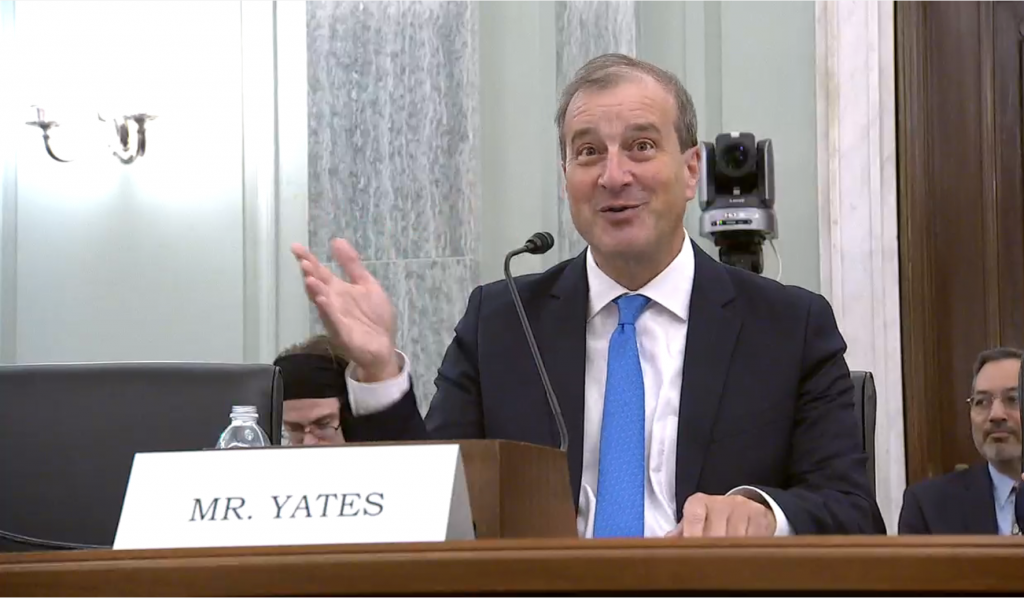Progress toward Lock The Clock
While it may seem quiet in the effort to Lock The Clock, things are moving forward.
After my testimony in front of the U.S. Senate Commerce Committee, and my time spent in the offices of several senators, I decided that I would continue to work on bringing some sanity to the clocks, but would be doing so more behind the scenes.
Social media has gotten so repulsive anyway that I was happy to stop doing that.
But progress continues!

Federal progress
After that amazing hearing, we did make progress. It was the first time a bill had even gotten a hearing, and it was clear that there is a hunger for a change to the current time system. I was pleased indeed to see that my suggested amendment — a two-year implementation — was adopted and made a part of the bill that is now in front of the Senate.
That said, as I write this the government is currently shut down. If the people in Congress can’t agree on a budget, I don’t know how we can expect that they would pass a bill to get rid of clock changing.
State progress
My strategy for nearly a decade was to focus all my attention on the states. That worked. More than 20 states passed some form of legislation, nearly all opting for permanent DST. Two more states joined the list this year, Pennsylvania and Texas.
While Sen. Ted Cruz of Texas essentially lobbied during the hearing in the U.S. Senate for a bill that would see Texas hold a referendum on which time zone Texas should lock into, that bill did not pass in Texas. However one did pass that would lock Texas into DST if the U.S. Congress allows it.
As longtime readers know, I’m agnostic on the question of if we should lock into permanent DST or ST, saying that individual states should pick based on their own geography. I have pointed out that permanent DST seems to be more popular, even in states like Michigan, which in my mind would be a great candidate to be on permanent ST.
Well, there was more evidence of that in the states this year. Remember that if a state legislature wanted to do what Arizona and Hawaii did and stay in Standard Time all year, it could do so today and end the clock changing. Utah borders Arizona and could do that, but the bill died. Same for Nevada, Arkansas, Alaska, Oklahoma, Montana, and others. For all the noise the permanent ST advocates make, they have yet to convince even one state of their point of view.
Science
I added a couple of new studies to the research page. Nothing dramatic. I added a report from eye doctors that serious eye problems get worse with the Spring change and better with the Fall change when we get more sleep. Nothing as dramatic as the other studies, I guess unless you are the one who has a serious eye problem!
I also added a new study about sleep quality and included a small bit of commentary. In short, the study shows that the further away from the equator that you are, the more having permanent DST helps you get more sleep.
The thing I liked the best was this line, something I’ve been saying for years: “the decision to implement DST should consider geographical factors such as latitude rather than being driven solely by historical or political traditions and conventions.” The authors, Bhanu Sharma and Eugene Pinsky, get a lot of credit for stating that so clearly.
History
The history of Daylight Saving Time in the U.S. goes back to WWI, 1917. Back in 2016, I was optimistic that the 100th anniversary of DST would be an occasion to get rid of it. That was nearly 10 years ago!
I was reminded of that reading this excellent story by Kimberly Miller, who has been writing eloquently about the topic since it was first passed by the Florida legislature.
Ten years feels like a long time unless you watch the hearing, especially near the end where Sen. Markey talks about trying to get rid of the clock changing since the mid 1980s! Nearly 40 years of work on this issue! How he is able to keep such an engaging smile when talking about this is a mystery to me, but he does it and does it well.
But as I’ve said all along, this is the ultimate bipartisan issue. Watching the exchange between Sen. Markey and Sen. Cruz talking about this with a genuine cordial and collegial nature is enough to give one hope that democracy may just survive.